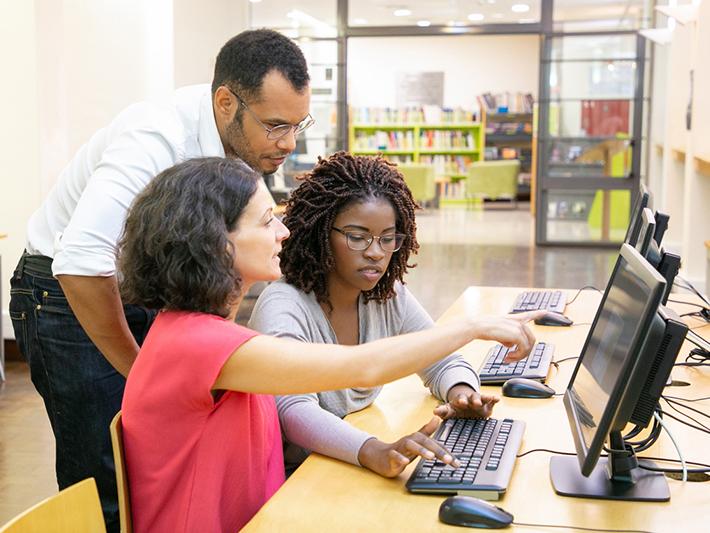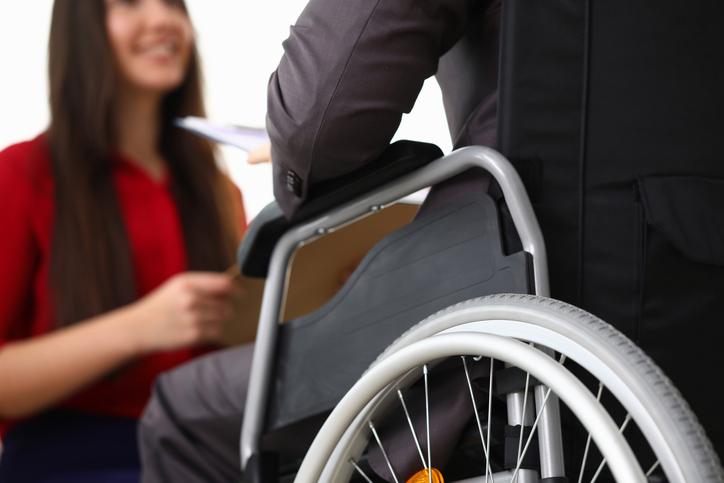
Inclusive co-teaching can draw on educators’ lived experience

Inclusive university education usually focuses on diversity among students, whether that includes those with disabilities, international students or other groups. However, inclusive education can also encompass faculty, turning its attention to the diversity of university teacher profiles and the knowledge they can provide. One profile that can be under-appreciated is that of teachers who have valuable knowledge to share based on their lived experience.
In the Faculty of Education and Teacher Training at the Universidad Autónoma de Madrid, we carried out a two-year teaching initiative in which I, as an academic lecturer, and two teaching assistants with intellectual disabilities jointly taught a module on disability, inclusion and education. Each of us participated in all aspects of the experience, from planning and delivery to assessment. The initiative was officially funded and the results published.
On the basis of this initiative, we created the inclusive co-teaching model, which centres on joint teaching by academic faculty and expert-by-experience assistants. While traditional co-teaching models focus on addressing student diversity, or collaboration between academic teachers, this approach makes use of the complementary knowledge that different types of teacher, such as a lecturer and an expert by experience, can provide. In our case, the teaching assistants explained their life experiences in relation to the contents of the module and evaluated the accessibility of the students’ class presentations, while I, as an academic teacher, taught the theory and assessed written work. We participated together in all the course sessions and class preparation was done jointly. We discussed the contents to be covered as well as the teaching activities. I oriented my colleagues about the minimum content to be covered in the subject, trying to listen to their opinions based on their life experiences and how to teach them.
- Spotlight collection: making your campus neurodivergent friendly
- Autism in academic settings: unleashing unique strengths with adjustments
- What I’ve learned from a decade of working with a disability in academia
The model is applicable not only for teaching assistants with intellectual disabilities and in education faculties, but potentially also with other groups and in different areas of the social sciences, humanities and health sciences. It can be open to the participation of other experts by experience (for example, people with different types of disability, Indigenous cultures, minority ethnicities, or people with experiences of unfavourable socio-economic conditions or long-term hospitalisation). The theoretical, philosophical and pedagogical bases of the inclusive co-teaching model are grounded in a rethinking of university teaching that recognises the educational value of the knowledge that certain people develop through their life experiences, in addition to the importance of links between universities and society.
Similar initiatives, such as at Trinity College Dublin, inspired our work. Our experience implementing this approach with the participation of teaching assistants with intellectual disabilities had significant impacts on our students’ learning, especially in terms of their awareness of prejudices and stereotypes towards disability and inclusion. Receiving classes from these teaching assistants helped students to be more compassionate towards people with disabilities, enabling them, in their education as future schoolteachers, to have a better understanding of the needs of pupils with disabilities.
This model has been recognised with the European Award for Excellence in Teaching in the Social Sciences and Humanities (2024), conferred by the Central European University. Much remains to be done, however, and there is a need for further inclusive co-teaching initiatives in different disciplines and groups.
From our experience, there are a number of key factors to implementing this approach successfully. The first is university cooperation with society and with social and non-profit organisations. Second, both academic faculty and expert-by-experience assistants require teacher education; the latter might also require basic didactic training. Finally, a truly cooperative process is called for between both types of teacher, encouraging joint participation in all aspects of the teaching process, from planning modules and classes to delivery and student assessment.
Although inclusive co-teaching is a model that can have a significant impact on student learning (for example, with respect to awareness of prejudices and stereotypes), it also has limitations. Thus, it is important to know that one person’s view (a teacher with disability, for example) does not represent the entire group. The model is also not necessarily applicable to all subjects. Inclusive co-teaching, however, can be particularly valuable in subjects that aim to bridge theory and practice and study human relations with vulnerable groups.
Pablo Rodríguez Herrero is an associate professor in the department of pedagogy at Universidad Autónoma de Madrid, Spain.
If you would like advice and insight from academics and university staff delivered direct to your inbox each week, sign up for the Campus newsletter.
Additional Links
Read the results of this experience in the article “Inclusive co-teaching with teachers with intellectual disabilities in teacher education”, which was published in the European Journal of Teacher Education.


